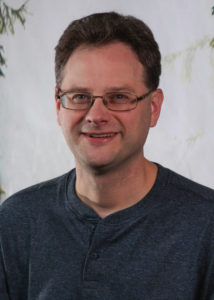“Come in, — come in! and know me better, man!” -Charles Dickens, A Christmas Carol
We’d love for you, our wonderful readers, to get to know us better. That’s why, each month, Kristin Luna will interview a member of The Fictorians. We’ll learn more about each member, such as their writing processes, their work, where they live, and what they prefer to drink on a warm summer’s day. We hope you enjoy this monthly installment of Meet the Fictorians.
Meet the Fictorians:
Dave Heyman
Kristin Luna (KL): Hi Dave! How are you and what are you drinking?
Dave Heyman (DH): I’m doing great! I’m drinking my one and only vice, which is coffee. I prefer instant to brewed. Blasphemy, I know, but it’s easier on my stomach. When traveling I prefer Dunkin’ to Starbucks, and love that I can just say “Medium hot, 3 and 3” at the counter and get what I want. It’s a New England thing.
Coffee. Love it.
KL: I actually prefer instant as well! I don’t speak that out loud, of course, and it sounds like you know exactly why. If you don’t mind me sharing, you live in Maine. Tell us a little about that.
DH: I’ve been a New Englander most of my life. I was stationed in Maine during one of my Navy tours and after that I knew I would be back. We raised our kids in New Hampshire but the plan was always to move back to Maine and I’m thrilled we’ve executed on that plan.
To me, Maine is New England in its most concentrated form. I love the climate, I love the ocean views and the foliage and I love the people. There’s nowhere else like it on earth. There’s just a hundred places you can go in Maine and just soak in the beauty.
KL: Do you find that a little bit of Maine comes through in your writing from time to time?
DH: More than a little. My stories often have a strong seafaring component to them, that’s influenced by my Navy career but also by Maine. Earlier this year I wrote a complete fantasy short story set in Maine that I’m making the submission rounds with right now. I also have a pair of lighthouse-related stories that have a lot of Maine wrapped up in them.
KL: You’ve completed a couple of novels. Tell us more about those, what they’re about and what your plans are for them.
DH: The first novel I completed was called ‘Ash Princess’, which I started during Nanowrimo of 2013. It’s an epic fantasy, the first draft clocks in at about 130,000 words. It the novel I carried around in my head for twenty years, always with the plan of writing it “someday”. After a close friend had a brush with death, I realized “someday” needed to become “now” and got busy. It took me about six months and writing it was a great learning experience. I have no intention of publishing it, but I pull it out to look at every now and then. It’s… not awful.
The second novel is a fantasy dystopian (is that a thing? I’ve decided that’s a thing) titled ‘Shades of the Sea’. After writing one novel, I wanted to see if I could write a second one without having two decades of prep time. Between the two novels I took a David Farland workshop, and a lot of those techniques paid off with this story. It’s still in its first draft, at about 100k words. It’s a pretty good story, I might pull it out again some day to see if it can be whipped into publishable shape.
Both of those novels were less about being published and more about learning how to be a writer, developing a process that worked for me and finding my voice. I think some aspiring authors can get stuck forever polishing that first novel and never get past it. For me, it was more a case of looking at what I did and saying “Ok, neat. Now what else can I do?”
KL: What writers do you find most influential?
DH: As a kid growing up in the 70s and 80s, I started with Tolkien and Clarke- -they were my primers on fantasy and science fiction. I read some Asimov and Heinlein too, but they never connected with my the way Clarke did. For fantasy, after Tolkien I moved on to Weis & Hickman, Eddings, Anne McCaffery and Katherine Kurtz. I also have a deep and abiding love for the world building in Stephen R. Donaldson’s books, even as I acknowledge the unpleasantness of his main characters. I also read a ton of Stephen King, Clive Barker and Dean Koontz.
As an adult aspiring author, I have been very influenced by some of the people whose workshops I have taken. Influenced by their prose, but more importantly in how they treat their peers and students and the passion with which they speak of the field. David Farland, Jeanne Cavelos, Mary Robinette Kowall, Kevin J. Anderson, Dean Wesley Smith- -all people I have learned a ton from and try to model myself after.
KL: You mentioned you were in the Navy. Do you find that that influences your writing? Military fantasy or sci-fi? If it doesn’t now, would you see yourself incorporating it in your future writing?
DH: I couldn’t be prouder of my time in the Navy. It was an amazing experience, and it does influence my writing, though not in the way you might expect. I didn’t leave the Navy with a love for the hardware of war, even if I love reading a good war book as much as the next person. What struck me the most in the military is the esprit de corps- -the bond that is struck amongst people working together in stressful situations. I have tapped that feeling in most of the things I’ve written, it is a powerful emotion to experience.
I do have a series planned that revolves around a military ship in a fantasy setting, so I’m sure I’ll pull on lots of my Navy times there.
KL: What’s your favorite work you’ve written so far?
DH: I have a novella that is about 75% complete (but 100% plotted) called The Fifth Interdictor. In short, it is a fantasy about a seemingly unstoppable guardian who slowly learns that her whole life has been engineered, with many layers of secrets hidden from her. She pulls the pieces of her true life together, but at the cost of her power- -becoming weaker and more vulnerable the more she truth she uncovers. Strangers become family, allies become enemies and her own identity is questioned. Is she a hero, or a monster?
It is my favorite thing I have written, with both my favorite protagonist and my favorite antagonist. I expect to complete it next year (another project muscled its way to the front of the line) and once it is done I will be finding a way to get it in people’s hands.
KL: What are some of your long-term goals with writing?
DH: Up until about six months ago I was running with no real plan. From 2013 when I got serious about doing this every day I was just focused on writing, writing and writing. Growing, learning, evaluating. I submitted a few short stories here and there, but nothing beyond that. I figured when I was ‘ready’ I would know.
Six months ago I decided I would write a novel that was intended not for growth, but for publication. The novel is a historical fantasy set in Nepal in 1950, titled Under Everest. I am working on it right now, and I expect to complete it in about another two months. I also have the aforementioned Fifth Interdictor, which I intend to compete and publish, as well as a nautical fantasy series I expect to start late this year.
KL: I love that – having projects specifically for growth and some specifically for publication. Do you have any stories available that our readers can buy or read online? Any plans for that in the future?
DH: Nothing out there yet. I am hopeful that 2017 will change all of that.
KL: I know you’re relatively new to the Fictorians, but what is your favorite Fictorians post you’ve written so far?
DH: I’m super excited and honored to be a full time Fictorian! My favorite Fictorians post is the first guest post I did, “Petting the Dog in Space”. I was so taken by the plight of little Philae the comet lander and I was very happy with how the post came out.
***
If you have any questions for Dave, please leave a comment below. Thank you for reading!



